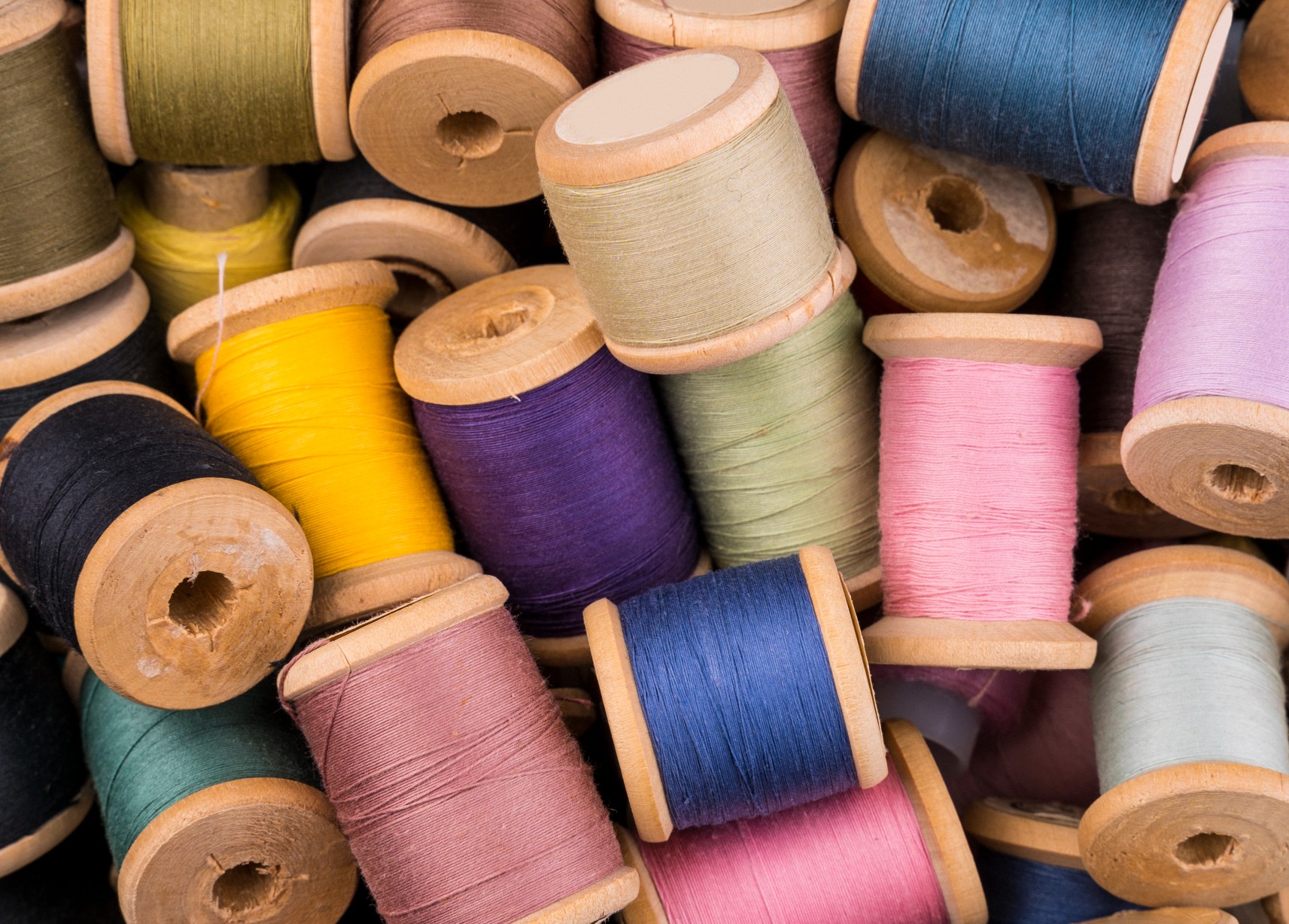Threads

Textile threads are essential components of fabric and textile products. They are thin strands or yarns of natural or synthetic fibers that are twisted together to create textiles. Threads play a crucial role in determining the quality, strength, and appearance of the final textile product. Here’s some important information about textile threads:
- Fiber Types: Threads can be made from various types of fibers, including natural fibers like cotton, wool, silk, and linen, as well as synthetic fibers like polyester, nylon, and rayon. The choice of fiber affects the characteristics of the thread and the fabric it’s used to make.
- Thread Count: Thread count refers to the number of threads per square inch in a woven fabric. Higher thread counts typically result in smoother, finer, and more durable fabrics. Thread count is often associated with the quality of bed linens.
- Thread Size: The thickness or diameter of the thread is often measured in denier for synthetic threads and in tex for cotton and other natural fibers. Thread size influences the strength and appearance of the fabric. Thicker threads are generally stronger.
- Thread Twist: Threads are twisted together to give them strength and cohesion. The direction and amount of twist can vary, affecting the thread’s performance and texture. For example, “S” twist threads are twisted counterclockwise, and “Z” twist threads are twisted clockwise.
